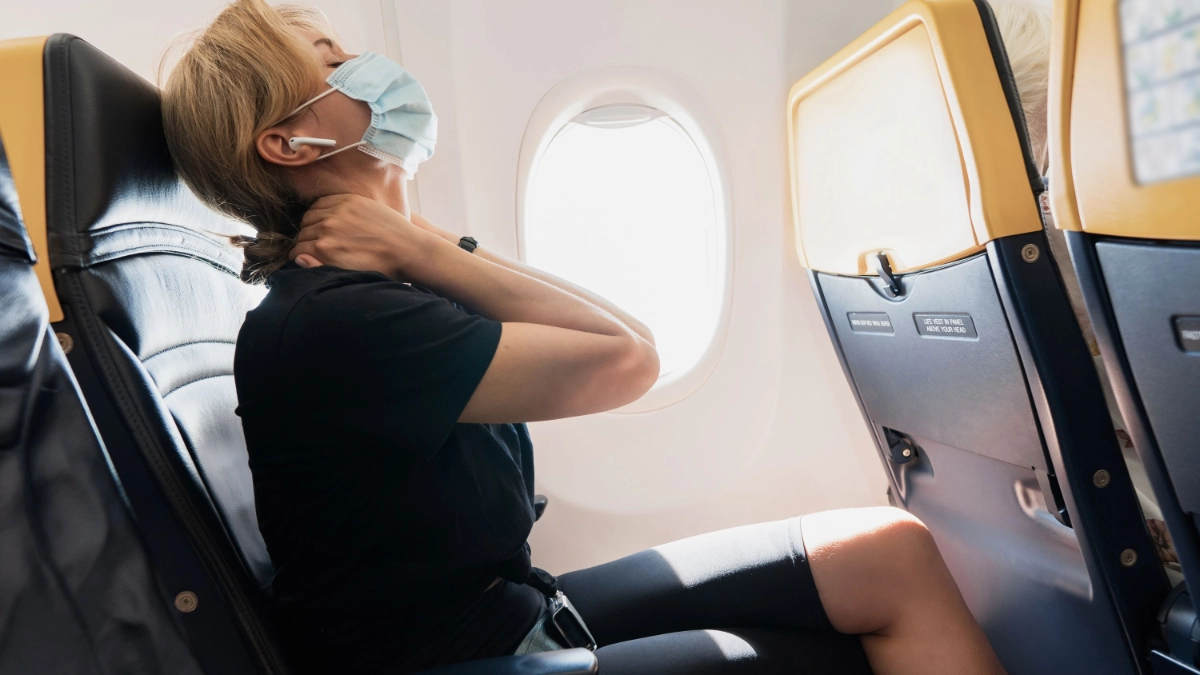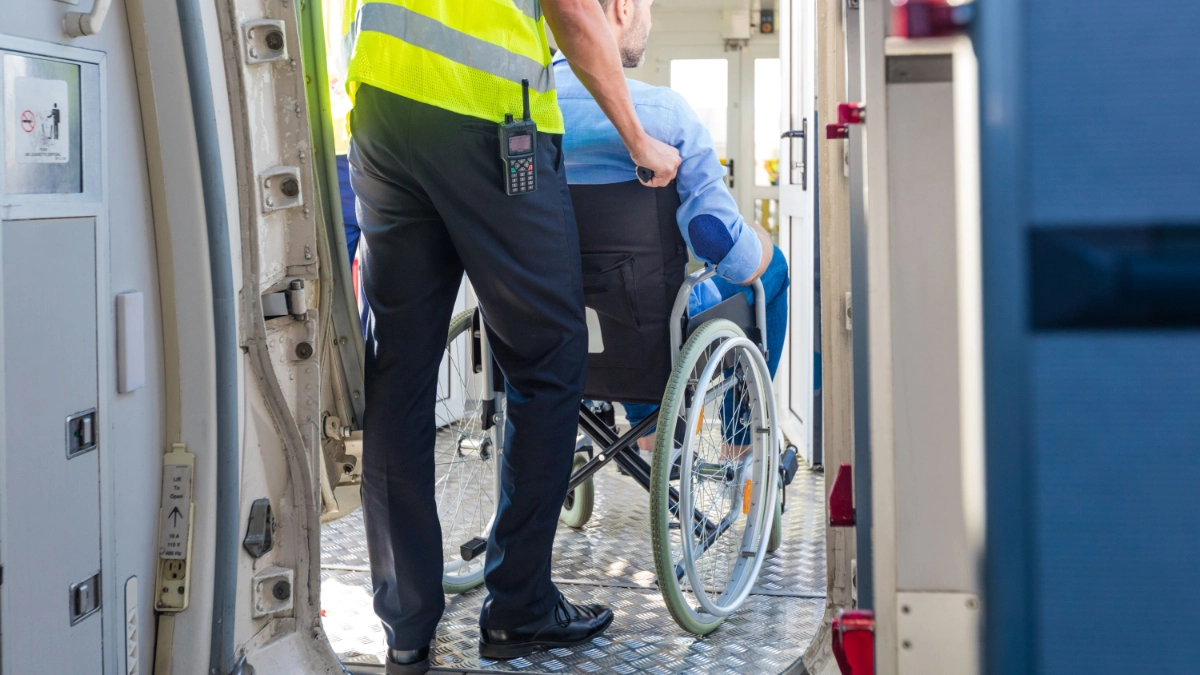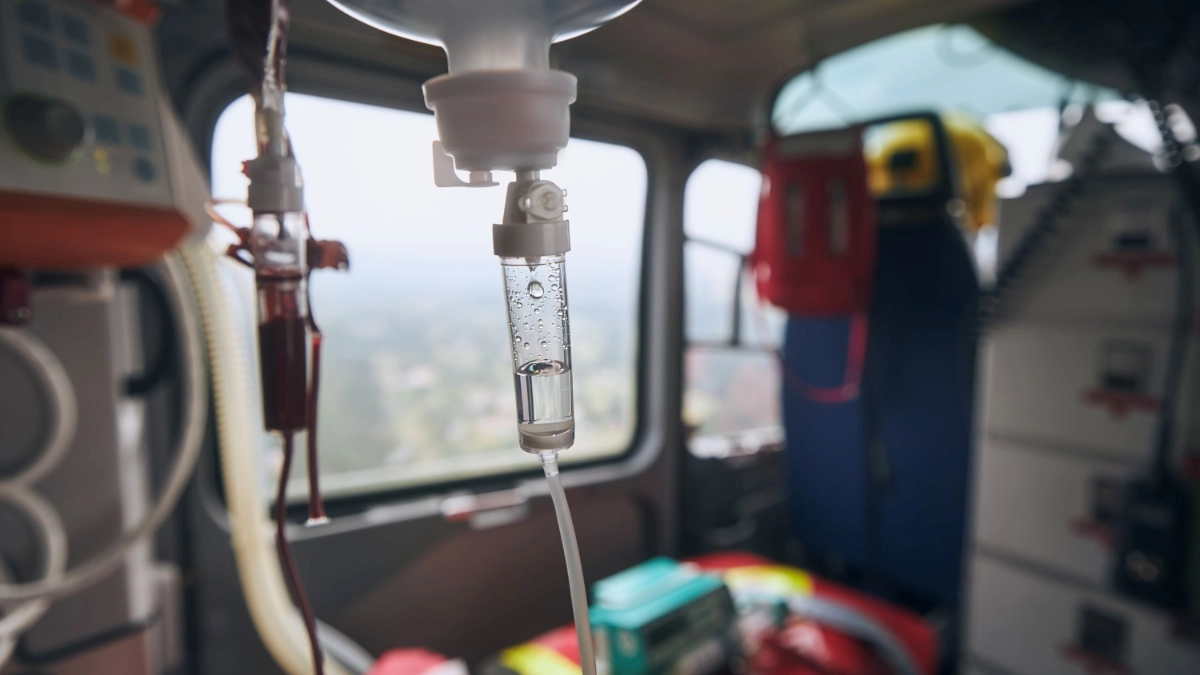Flying after surgery or illness: what you need to know

If you’ve recently recovered from an illness or surgery, you might be wondering if it’s safe to fly. Whether you’re planning to visit family or finally take that dream holiday, it’s natural to have questions about air travel after treatment.
At Staysure, we believe that a medical condition shouldn’t hold you back from exploring the world. That’s why we specialise in travel insurance for those with pre-existing medical conditions, giving you the confidence and support to travel safely after treatment.
And if you're recovering from a recent procedure and planning a trip, our awaiting surgery travel insurance is designed with you in mind. It offers tailored guidance on travelling post-surgery, with tips to help you prepare for a smooth getaway.
Is it safe to fly post-surgery or illness?
Deciding when it’s safe to fly after an illness isn’t the same for everyone. It depends on individual circumstances, and several factors can influence how ready you are to travel. Be sure to discuss these with your doctor to make an informed decision.
Typical wait times
Here's a general guide to waiting times for some common procedures.
Type of surgery/illness | Typical wait time before flying |
Minor keyhole surgery | 10 days |
Laparoscopic surgery | 4–7 days |
Abdominal surgery | 7–10 days |
Major abdominal surgery | 3–4 weeks |
Colonoscopy | 1 day |
Dental surgery | 2- 5 days |
Chest surgery | 10–14 days (about 2 weeks) |
Joint replacement | 3-6 weeks |
Hip replacement | 3 months |
Cataract surgery | 24–48 hours |
Complicated eye surgery | 7 days or more depending on the specifics of the treatment |
Angioplasty | 1–2 weeks |
Stroke | 2–4 weeks (stable condition) |
Heart attack | 2–6 weeks (stable condition) |
Uncomplicated fracture | 2–7 days |
Deep Vein Thrombosis (DVT) | 2–3 weeks (on anticoagulant treatment) |
Breast surgery (apart from implants) | 1 day |
Breast reconstruction with implants, 6 months | 6 months |
Remember to always consult your healthcare provider to make sure it’s safe to travel.

Risks of flying too soon
Flying too soon after surgery, without allowing the recommended recovery time, can pose serious risks to your health.
- Deep Vein Thrombosis (DVT) – when a passenger stays seated for an extended period on a plane, the limited movement in a confined space, combined with changes in cabin pressure, can increase the likelihood of blood clots forming in the legs (also known as Deep Vein Thrombosis or DVT). This risk becomes even higher following surgery due to reduced mobility and alterations in blood clotting.
- Infection – after surgery, your immune system might be weaker, which can leave you more vulnerable to infections. On top of that, the recirculated air in an airplane cabin could increase your exposure to germs.
- Impaired healing – apart from the physical strain level of travel, you also must lift luggage and sit for long hours. This can slow down the recovery process of surgical wounds and delay recovery from illness.
- Oxygen levels and cabin pressure – during ascent and descent, cabin pressure can cause discomfort or complications, particularly after certain surgeries. For example, gas trapped in body cavities (such as after abdominal surgery or eye surgery) can expand, leading to pain or damage.
- Limited medical care on board – while cabin crew are trained in basic first aid, they may not be fully equipped to manage complicated medical emergencies. If a medical issue arises mid-flight, getting the care you need could take hours. This delay can have a significant impact on your recovery from surgery or illness.
Do you need medical clearance to fly?
If you’ve undergone major surgery or illness, getting medical clearance to fly is usually recommended and sometimes even mandatory by airlines.

Fit-to-fly certificates
A fit-to-fly certificate is a document provided by your doctor that confirms you are medically cleared for air travel. It includes details about your health condition and verifies that you are stable and well enough to take the journey. Some airlines require this certificate if you have:
- recently had surgery
- been admitted to hospital in the past few weeks
- have a medical condition that is currently unstable
- have a condition that might need special assistance or medical equipment during the flight
Tips on how to get a fit-to-fly certificate from your GP or specialist
- Book an appointment with your GP or the specialist who performed your surgery or treated your illness well in advance of your travel date.
- Clearly explain your travel plans and include information like your destination, duration of travel and the type of flight (short or long-haul).
- Be open and honest about your current health status, any persistent symptoms, and your concerns about flying.
- Ask for a fit-to-fly certificate that includes all necessary medical information for the airline. Please note that some doctors may charge a fee for this and may not be covered by your travel insurance.
- Don't leave it to the last minute as doctors' offices can be often busy, so allow ample time for them to prepare the document.
Documents you should carry while travelling post-surgery
It’s always good to be prepared when you’re travelling with a medical history. Here are some important documents you should carry with you.
- Fit-to-fly certificate – if required by your airline or recommended by your doctor.
- Medical records – a summary from your doctor covering your diagnosis, treatment, and ongoing care can be incredibly useful if you need medical assistance while abroad.
- Prescription list – take a list of all your current medications, including their generic names, dosages and frequency. It’s also good if you can get a letter from your doctor explaining the necessity of each medication, particularly for any controlled substances. Keep in mind that some countries have strict regulations and may not allow certain controlled drugs, even with a prescription, so always safe to check the rules for your destination before you travel.
- Contact details of your doctor – your doctor's contact details, as well as emergency contacts.
- Travel insurance policy documents – your travel insurance policy number and the 24/7 emergency assistance number for your insurance provider.

Preparing for your trip
Once you've got your medical documents sorted, a few simple steps will make your trip hassle-free.
Preparing for the flight
- Get adequate rest before your flight so your body is well prepared for travel.
- Pack smart by keeping essential medications, medical documents, and any devices in your hand luggage.
- Bring a doctor’s letter if you're carrying medication or medical equipment – this may be required at security or border checks.
- Wear loose, comfortable clothing and consider compression socks if you’re at risk of DVT.
Notify your airline – special assistance options
If you’ve recently had surgery, been unwell, or need any kind of special assistance, it’s a good idea to let your airline know well in advance. They may be able to provide:
- wheelchair assistance from check-in to the boarding gate and upon arrival
- priority boarding to give you extra time to settle into your seat
- special seating arrangements to accommodate medical needs
- support with medical equipment, such as oxygen concentrators (check specific airline policies)
You should contact the airline’s special assistance or medical clearance team as early as possible to discuss your needs and ensure everything is arranged for your journey.
Practical tips during the flight
- Stay hydrated – drink plenty of water before, during, and after your flight to prevent dehydration, which can aggravate fatigue and increase DVT risk.
- Choose a comfortable seat – if possible, pre-book an aisle seat for more room to move around and request special assistance if needed.
- Wear compression socks – graduated compression socks can help improve blood circulation in your legs and reduce the risk of DVT, especially on long flights.
- Move regularly – if you’re unable to get up and walk around the cabin, try to perform in-flight exercises like ankle circles, foot pumps, and leg stretches every 30–60 minutes.

How travel insurance helps if you’re flying after surgery or illness
Staysure travel insurance policies are designed with your specific medical needs in mind. Here’s how travel insurance can help you after surgery or illness.
- Covering pre-existing conditions – Staysure offers cover for a wide range of pre-existing medical conditions, including those stemming from recent surgeries or illnesses. This means that if you experience a medical emergency related to your condition while travelling abroad, we’ll cover you for the essential treatment, which can otherwise be extremely costly.
- Essential add-ons – to ensure your travel insurance offers effective protection, look for the following key features:
- Cancellation cover: this is crucial if a pre-existing medical condition worsens or if you become unfit to travel before your trip. Cancellation cover helps recover any non-refundable costs, offering peace of mind.
- Medical emergency cover: important for situations requiring emergency medical treatment abroad or prescribed medication during your trip.
- Repatriation cover: this ensures you’re covered for unexpected situations that may require medical transportation back home. Staysure includes this it as standard –helping you save potentially significant costs of medical repatriation.
- 24/7 support and medical screening – with Staysure, you get access to 24/7 emergency medical assistance. This means that help is just a phone call away. Don’t forget to declare all your medical conditions accurately during the medical screening process when you buy your policy. This ensures you're fully covered if you need to make a claim.
Checklist – are you ready to fly?
Before you head to the airport, remember to tick off all the essentials on your travel list.
- Doctor’s clearance obtained.
- Travel insurance arranged.
- Medication packed, labelled, and placed in hand luggage.
- Flight and healthcare plans at the destination considered.
Flying after surgery or illness might feel daunting, but with the right preparation and travel insurance, you can enjoy a safe and stress-free journey. Before you head to the airport, remember to consult your doctor, ensure your travel documents are prepared, and count on us to help you leave your worries behind.
Proud to be a part of BIBA's medical directory. For people who have trouble finding travel insurance for pre-existing medical conditions, the British Insurance Brokers' Association (BIBA) has a directory of specialist insurers, like us! To find out more, or if on the odd occasion we are unable to provide the cover you need, contact BIBA on 0370 950 1790. You can also search BIBA's medical directory online.



